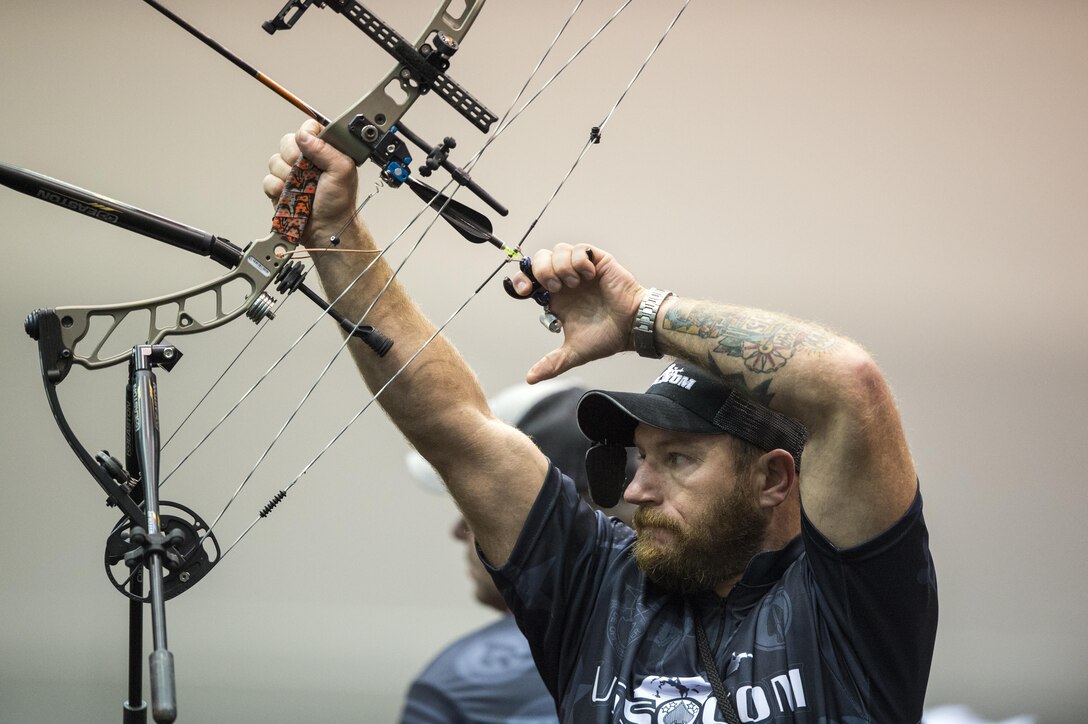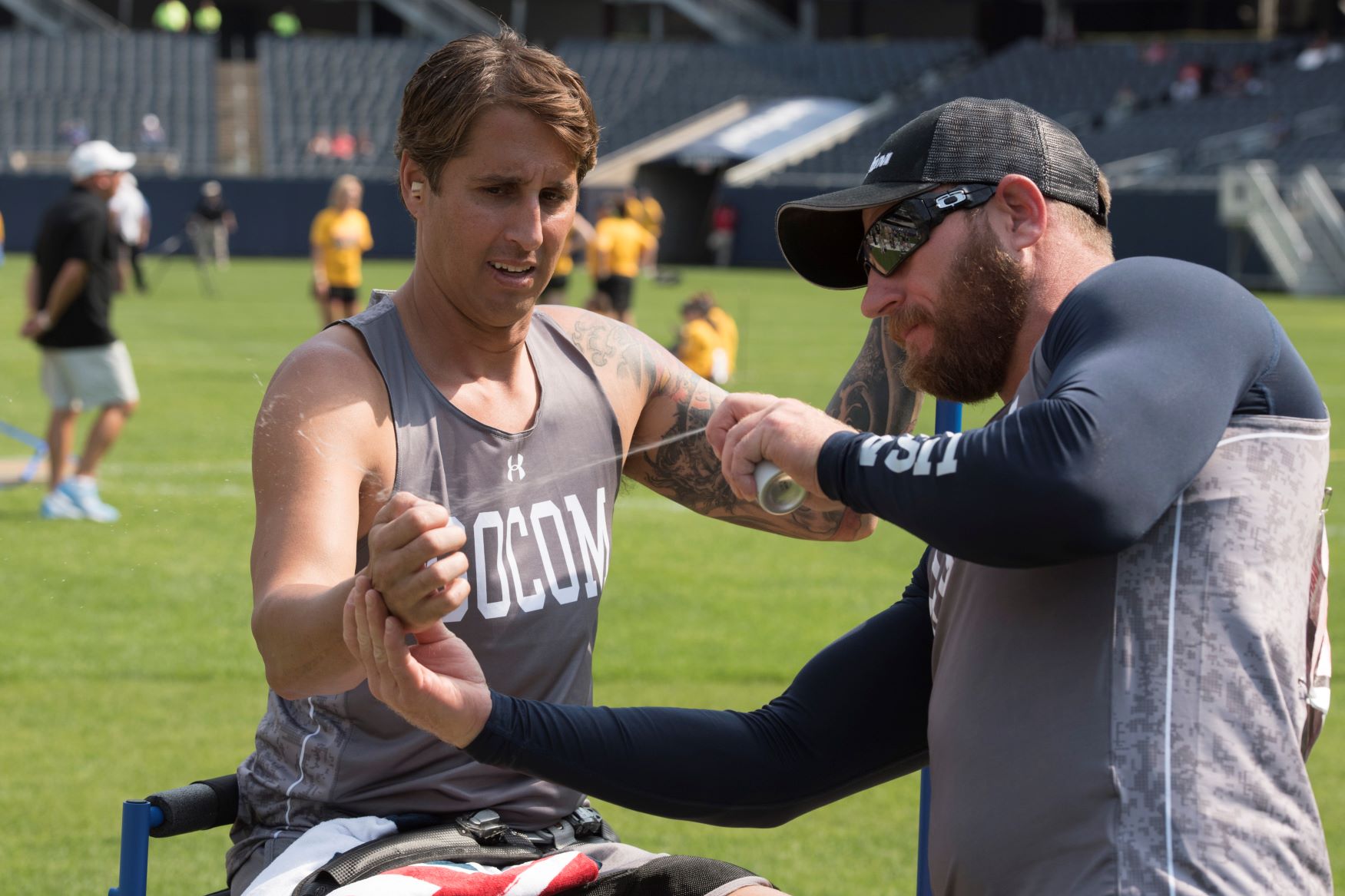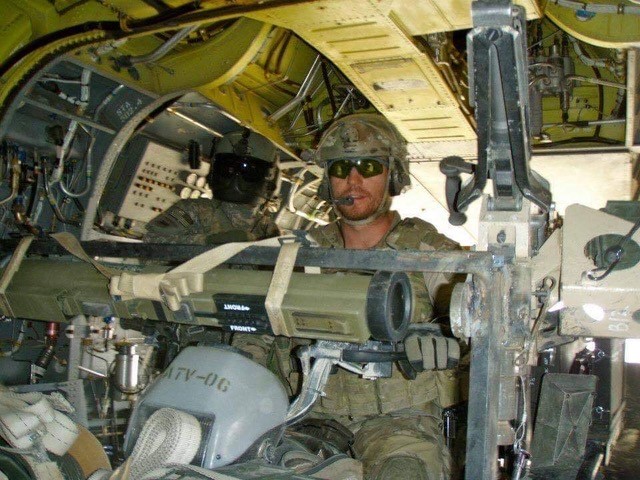Record date:
Joshua Lindstrom Transcript.pdf
Joshua Lindstrom, Sergeant 1st Class, Green Beret, Army Special Forces, Warrior Games and Invictus Games, 2015 & 2017
What motivates a soldier to push himself beyond the extremes of nature and to train for highly risky, and punishing US Special Forces? How did Green Beret, SFC Joshua Lindstrom handle being injured by an IED, improvised explosive device, on this fifth deployment? Sergeant Lindstrom shares his oral history with PMML when he was in Chicago for the DoD Warrior Games in 2017.
Joshua Lindstrom was born and raised in Bloomington, Minnesota. The son of a US Army veteran from the Vietnam era, his father was strongly against him enlisting, but the military nevertheless stayed on the radar for him. This was amplified after a year of college when Lindstrom felt that college life was not for him and decided to join the Army National Guard. A few months later, the United States invaded Iraq. Despite having a six-year contract with the National Guard, Lindstrom arranged to be released from his contract after 365 days, the minimum time before he could be released, so he joined the US Army and was deployed to Iraq as part of the Air Defense Artillery, earning the Combat Action Badge for being engaged by the enemy on multiple occasions. After completing his tour in Iraq, Lindstrom was in the awkward position of possibly being forced out of the military due to a lack of security clearance after having his tour extended by almost twelve months under the “stop loss” program.
In the end, Lindstrom decided to leave the Army for just under nine months and re-enlist. Lindstrom re-enlisted with the Infantry. In early 2003 as during his first Army tour, he had attempted to join for Special Forces selection but had voluntarily withdrawn from the Special Forces Assessment and Selection course after only eight days. He thus felt that the Infantry would provide him with the skills required to pass the selection process. After basic training, his request to be deployed to Germany from where his wife hails, was fulfilled.
In 2006, he returned to the Special Forces Selection course and was selected for the Special Forces Qualification. But, because regulations demanded that he complete at least 2/3 of his overseas tour, then Sergeant Lindstrom was deployed with his Infantry unit to a remote outpost in Eastern Afghanistan, for eight months. There he experienced heavy fighting and earned the Combat Infantryman’s badge for engaging the enemy on numerous occasions. He then went to Ft. Bragg, N.C. for a year and a half of grueling Special Forces training and was qualified to join the elite Special Forces Brotherhood and don the Green Beret. Upon graduation Lindstrom was assigned to 1st Battalion, 10th Special Forces Group, Operational Detachment 0116, a mobility team in Stuttgart, Germany. Almost immediately upon his arrival was redeployed with ODA 0116 to Afghanistan. He completed three deployments as a Green Beret in Afghanistan. During his third Special Forces deployment in 2012, his vehicle was hit by an IED [improvised explosive device]. He did not think that he was badly injured at the time, believing it to be a minor head injury. Unfortunately, by the end of his deployment, the injury was getting worse. He initially attempted to remain in the military but given the increasing difficulty he was having with memory, balance, and emotional control, as well as his doctors’ inability to help, he decided to pursue medical retirement. After a five-year struggle, Lindstrom now began to recover thanks to the help and support of his wife, Christine, and doctors he visited across the country supported by nonprofit organizations and nongovernment doctors. As part of his recovery, he participated in the 2017 Warrior Games for Special Operations Command (SOCOM) in Chicago where he won a gold medal in archery.
A few months after his interview at the Pritzker Military Museum & Library, Lindstrom earned gold and bronze medals in the Invictus Games in Toronto. For the next two years, he coached Warrior Game participants both in archery and in meditation/breathing practices. He reflects that he would not accept living with a “broken brain.” Thanks to his faith in God and inspired by limbless athletes competing in track, he optimized how to heal, deliberately choosing archery, and learning to play the drums, for example, so that he would grow new neural pathways. Reasoning that just because academics had never been his strong suit, he should develop his brain by studying. He completed his associate degree, and then his bachelor’s degree at Regent University. He discovered that sadly, many injured veterans were not awarded Purple Hearts and thus could not receive any benefits. He thus chose to study law at Regent University to redress this injustice. Indeed at Law School, he established the “Purple Heartless Project” where he and other students document the wounds of these veterans and submit applications on their behalf.















